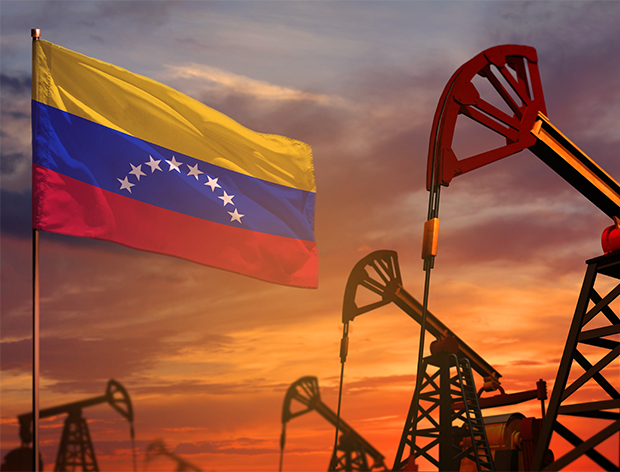The US government’s decision to lift sanctions on liquefied petroleum gas (LPG) exports to Venezuela should be seen as a “humanitarian gesture” rather than a wholesale shift in trade relations, experts suggest.
The Office of Foreign Assets Control (OFAC), a sanctions regulator that sits within the US Department of Treasury, issued a general licence this month relaxing certain Trump-era restrictions on Venezuelan trade.
Under the licence, exports of LPG are permitted to companies linked to the Venezuelan government or owned by state oil company Petróleos de Venezuela (PdVSA).
Payment in kind with petroleum or petroleum products remains forbidden, as does trade with other entities still sanctioned by OFAC.
The authority has not set out its reason for the relaxation of restrictions, but it has been widely seen as an attempt to address a major shortage of cooking fuel in the troubled South American nation.
Despite Venezuela sitting on vast oil reserves, the decline of domestic processing facilities has left it reliant on foreign imports to produce usable fuel products. Domestically, the gas canister shortage has left Venezuelans dependent on burning wood instead.
The move is not being considered a sign that relations with the US are starting to thaw, however. Washington, DC-based lawyer Brian Fleming, co-lead of Miller & Chevalier’s economic sanctions and export controls practice, says the licence is “more a modest humanitarian gesture than a seismic shift in US sanctions policy”.
Similarly, OFAC decided in June to relax restrictions on transactions with Venezuela’s central bank, government and state-controlled financial institutions, providing they involve goods or services related to the Covid-19 pandemic.
Despite that, Fleming suggests the easing of sanctions could signal a tactical shift in the use of such measures by President Joe Biden, compared to his predecessor.
“This action does demonstrate that the Biden administration is willing to abandon the all-or-nothing, maximum pressure approach to economic sanctions favoured by the Trump administration,” he tells GTR.
“If anything, the Biden administration is likely hoping that this act of goodwill toward Venezuela, to help provide needed cooking gas and alleviate related environmental damage, may be a small step toward the United States’ ultimate goal – negotiating a plan to hold free and fair democratic elections in Venezuela.”
The authority has continued to uphold strict controls on other aspects of Venezuelan trade. Last week, the Treasury Department extended a Trump-era restriction stopping creditors of PdVSA from seizing assets held by the state-owned oil company.
In late 2019, after PdVSA missed payments on an 8.5% bond, the US moved to stop Venezuelan creditors from taking control of its assets, encouraging them to restructure the debt instead.
One concern is that Venezuelan creditors could take control of PdVSA’s US-based refiner Citgo, which is the state-owned oil company’s most valuable foreign asset.
Strict Trump-era controls on Venezuelan oil imports also remain in place, with the administration increasingly targeting those involved in transporting oil products, including shipowners and vessels themselves.
Though exports of LPG from the US to Venezuela were historically a regular trading activity, involving large traders including Trafigura and Vitol, it remains doubtful whether the relaxation of sanctions will reopen that trade corridor.
Banks and traders have long been wary of doing business in sanctioned countries, due to the risk of inadvertent exposure to still-prohibited activities, and the lack of creditworthiness of Venezuelan entities could act as a further deterrent.
At the same time, the prohibition of payment-in-kind means historic trading arrangements – where the US would import Venezuelan diesel in exchange for LPG – are not possible, meaning PdVSA would need to generate liquidity itself.







